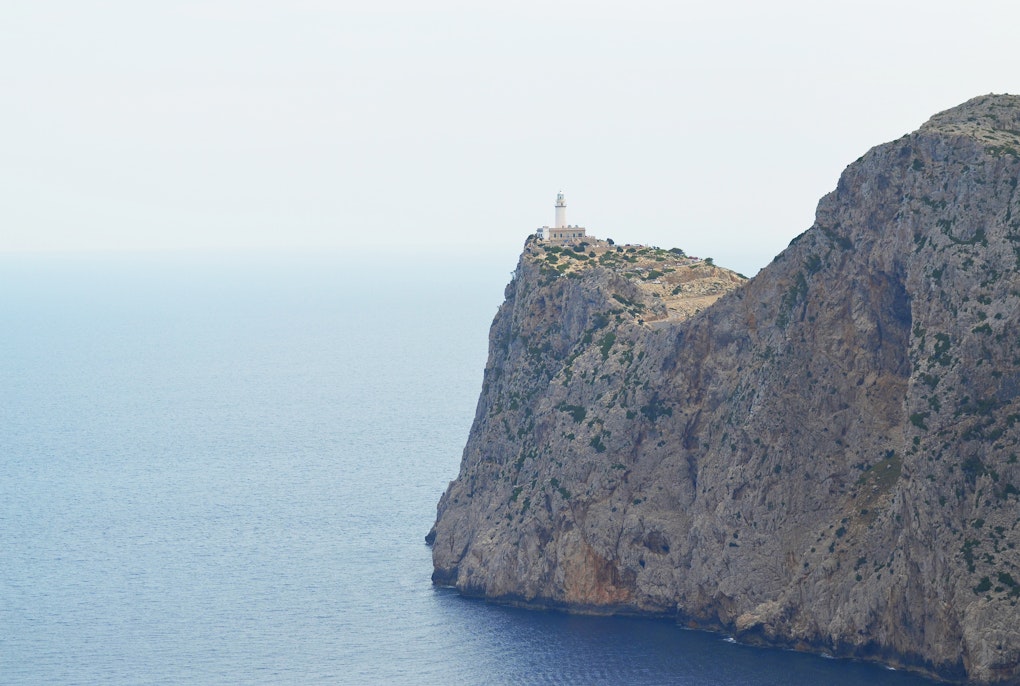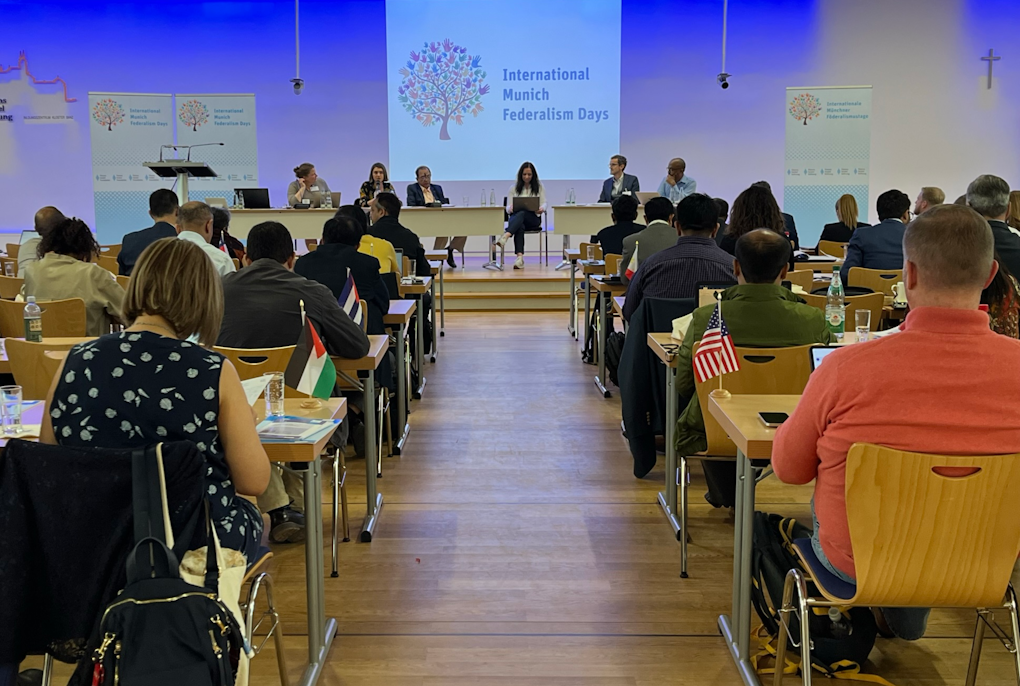
Spain faces the abyss
 Francisco Javier Romero Caro
Francisco Javier Romero Caro
1 Spain is not alien to the phenomenon of populist narratives and constitutional erosion. Although probably unnoticed by international audiences, one of the most relevant examples of constitutional erosions that has taken place in Spain is the Catalan secessionist bid. In this blog, I focus on two populists traits of the pro-independence movement from a constitutional law perspective: i.e., the illiberal interpretation of democracy and the disdain for the rule of law.
Over the past decade, a pro-independence majority in the Catalan parliament has attempted to organize a referendum on independence. Polls have consistently suggested that a majority of Catalans are in favour of being asked about independence. But surveys and electoral results have been equally consistent in showing that Catalonia is split in two halves when it comes to secession. There is no majority of citizens (let alone a clear majority) in favour of independence.2
Catalan pro-independence leaders have made great efforts to build the case that organizing a referendum on secession is a question of democratic quality. “Voting is normal in a normal country” or “this is about democracy” were some of the most repeated slogans. However, only a few democracies (e.g. Canada and the UK) have permitted a vote on the secession of a part of the country. Other constitutional democracies (e.g. US, Italy, Germany) have rejected the idea that one part of the country can organize a referendum on secession. Catalan pro-independence leaders were arguably disingenuous in suggesting that a referendum on secession is “normal”. What is more worrisome, they assumed that democracy, understood as majority rule, should trump any other legal principle, like the rule of law, respect for minorities, or federalism.
Democracy is not only about voting or about the wishes of the majority. Constitutional democracy means people deciding, but doing so according to rules that can only be changed following their own amendment procedure. However, in the populist narrative of the Catalan pro-independence movement, a majoritarian concept of democratic legitimacy took prevalence over the rule of law, and the popular will was conceived as the only source of power. The implication was that ‘the people’ cannot be wrong and therefore, leaders and parliaments should find a way to carry out people’s aspirations, regardless of the letter of the law.
The referendum became a moral goal, the only tool to allow for the political expression of the people’s will. Oriol Junqueras, former Vice-President of the Catalan government, had insisted several times that “voting is a right that prevails over any law” and that “we [Catalan government] will disobey the Spanish laws, but we will obey the mandate that we have in the Catalan Parliament.”3 Catalan institutions also attempted to discredit the Spanish constitutional framework. For instance, the Resolution of Catalan Parliament 1/XI, of 9 November 2015 established that the Catalan Parliament will no longer be subject to decisions adopted by the “Spanish State”, in particular those coming from the Constitutional Court that according to the Resolution “lacks legitimacy and competence”.
This opposition between purported popular legitimacy and legality implies an illiberal version of democracy. The idea of the government of the people is taken literally and checks and balances on the popular will are rejected.
Moreover, the triggering motivation behind a referendum on secession is not democracy, but nationalism. In other words, as Carlos Closa argues, there is no reason why the democratic right of one group to secede (Catalans) must prevail over the equally democratic rejection of this right expressed by a majority of a wider demos (Spaniards). In other words, why is it more “democratic” that only Catalans, rather than all Spaniards, decide the destiny of Catalonia and Spain?
Spanish constitutional legal order does not recognize the right of the inhabitants of an Autonomous Community to decide on the dismemberment of the country. The Spanish Constitutional Court (SCC) (Judgments 42/2014 and 259/2015) has stated that considering the Catalan people as sovereign is against Spanish national sovereignty, which cannot be divided. Besides, the Constitution is based on the indissoluble unity of the Spanish Nation. Furthermore, the central State holds exclusive competence over authorization for popular consultations through the holding of referendums (Art. 149.1 Spanish Constitution). Thus, an Autonomous Community that enjoys self-government cannot unilaterally call a referendum on self-determination, because sovereignty is only reserved to the Spanish people as a whole. The SCC accepts that the so-called “right to decide” is a legitimate political aspiration. However, since this aspiration is precluded by the prevailing constitutional framework, the Court argued that such aspiration should be channelled through a constitutional amendment.
Despite the clarity of the Court’s position, in September 2017 the pro-independence majority in the Catalan Parliament passed two laws: 19/2017, on a referendum on self-determination, and 20/2017, on the foundation of the Republic. Both laws established that they prevailed over the Spanish Constitution and the Catalan Statute of Autonomy, even when they failed to reach the qualified majorities required to amend the very same Catalan Statute of Autonomy (i.e. 2/3). Besides, the urgent parliamentary procedure that had been triggered to adopt these laws reduced the discussion period to less than a day for each bill, leaving no time for scrutiny. Both laws were immediately challenged before the SCC, which suspended the laws and their effects. The referendum nevertheless took place on 1 October 2017, although without procedural guarantees.
The disdain for the rule of law could also be seen in the way the referendum was implemented. The 2017 referendum failed to comply with many of the Venice Commission guidelines on the holding of referendums, as set out in a Code of Good Practice on Referendums from 2007, and now the Revised Guidelines from 2020. For instance, the Venice Commission stipulates that referenda should not be held if the Constitution or a statute in conformity with the Constitution does not provide for them. Neither the Spanish Constitution nor the Catalan Statute of Autonomy provides for a referendum on secession. Venice Commission guidelines also underline the importance of an impartial body being in charge of organising the referendum. However, the electoral commission that the Catalan Parliament had appointed to supervise the referendum (without members of the opposition) was dissolved after the Constitutional Court imposed coercive fines on its members (Decrees 123 and 124/2017, of 19 and 20 September 2017) and was not replaced.
The populist narrative of the Catalan authorities at the time of the 2017 referendum thus fits within the recent wave of populism. It assumed that democracy is at its most genuine when the will of the people is unlimited, emerges directly from a referendum, and that majority preferences should not be subject to judicial review. Such a populist approach risks eroding the legitimacy of one of the central pillars of the post WWII legal order: counter-majoritarian institutions, particularly the courts and constitutional justice.4
This article was first published on the blog of the Centre on Constitutional Change.

This content is licensed under a Creative Commons Attribution 4.0 International license.

 Francisco Javier Romero Caro
Francisco Javier Romero Caro
 Martina Gianola
Martina Gianola
 Ana Tereza Fernandes
Ana Tereza Fernandes